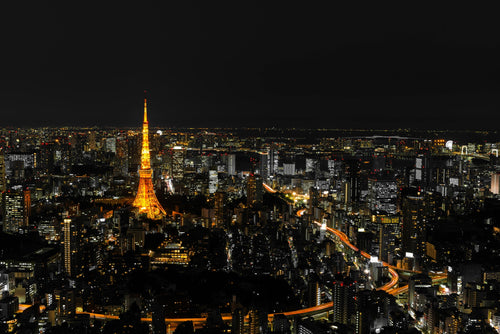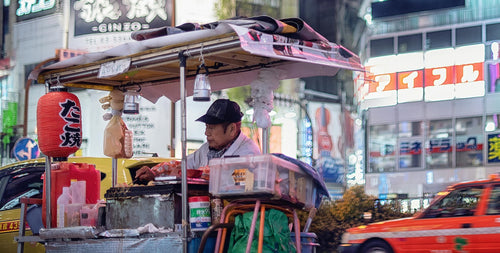
Useful Japanese phrases for travelers
Traveling in Japan can be even more rewarding with a few helpful Japanese phrases under your belt. While Japan is generally accommodating to English speakers, learning basic phrases for greetings, asking for directions, or ordering food can make your interactions smoother and more enjoyable. Japanese people greatly appreciate the effort, and you may find that a simple phrase can open doors to a more immersive experience.
This guide will cover essential Japanese phrases for various travel situations, ensuring you’re prepared for every part of your journey, from navigating the bustling city streets to ordering food at a traditional restaurant. With this guide, you’ll be ready to explore Japan with confidence.
Contents
1. Greetings and Politeness
Knowing a few basic greetings and polite expressions will make a strong first impression. Japanese culture places high importance on respect and politeness, so starting with these essentials is a great foundation.
Hello / Good day: こんにちは (Konnichiwa)
A general greeting used in both formal and informal settings. Saying “こんにちは” is an easy way to start an interaction.
Good morning: おはようございます (Ohayou gozaimasu)
This is a polite way to greet someone in the morning. In casual settings, you can just say “おはよう (Ohayou).”
Good evening: こんばんは (Konbanwa)
Say “こんばんは” in the evening hours. It’s a polite and respectful greeting, suitable for most situations.
Thank you: ありがとうございます (Arigatou gozaimasu)
Use this to express gratitude formally. For a more casual “Thank you,” say “ありがとう (Arigatou).”
Excuse me / I’m sorry: すみません (Sumimasen)
This versatile phrase can be used to get someone’s attention, apologize, or say “Excuse me.” It’s especially helpful when you need assistance or to politely brush past someone in a crowded place.
Goodbye: さようなら (Sayounara)
This is used for final goodbyes, though you might hear locals say “またね (Mata ne)” or “じゃね (Ja ne)” in informal situations, which mean “See you later.”
2. Basic Travel Questions
Asking basic travel-related questions in Japanese can help immensely, especially in smaller towns or rural areas where English may not be as common.
Where is…?: ~はどこですか? (… wa doko desu ka?)
Use this to ask for directions. For example, “Where is the station?” would be “駅はどこですか? (Eki wa doko desu ka?).” Replace “駅 (Eki)” with the place you’re looking for.
How much does this cost?: これはいくらですか? (Kore wa ikura desu ka?)
Ask this question when you want to know the price of something. It’s especially useful when shopping or dining.
Can you speak English?: 英語が話せますか? (Eigo ga hanasemasu ka?)
Politely ask if someone can speak English. If they reply, “少し (sukoshi),” it means they can speak “a little.”
3. Directions and Navigation
Finding your way can be easier with a few direction-based phrases, especially since many Japanese signs and maps may only have limited English.
Right / Left: 右 (Migi) / 左 (Hidari)
“Right” is “右 (Migi),” and “Left” is “左 (Hidari).” Use these when getting directions.
Go straight: まっすぐ行ってください (Massugu itte kudasai)
This phrase is useful for asking to go straight or to confirm a direction.
Is it nearby?: 近いですか? (Chikai desu ka?)
Ask this to confirm if a place is close by, which can be helpful in determining walking distance.
4. Transportation Phrases
Japan’s public transportation is efficient but can be challenging to navigate. These phrases can help you make sense of train, bus, and taxi options.
Train station: 駅 (Eki)
Knowing the word “駅” is essential for navigating Japan’s extensive train network. To find a specific station, add the name before “駅” (e.g., Tokyo Station is “東京駅 – Tokyo Eki”).
Where does this train go?: この電車はどこに行きますか? (Kono densha wa doko ni ikimasu ka?)
A helpful phrase when you’re unsure of the train’s destination. You can also ask about buses with “このバスはどこに行きますか?” (Kono basu wa doko ni ikimasu ka?).
5. Dining and Ordering Food
Dining out is a major highlight in Japan, and understanding some dining-specific phrases can help you fully enjoy the experience.
Menu, please: メニューをください (Menyuu o kudasai)
Use this to request a menu when you sit down at a restaurant.
Can I have…?: ~をください (… o kudasai)
This phrase is used to order something specific. For example, “Water, please” is “水をください (Mizu o kudasai).”
Check, please: お会計お願いします (O-kaikei onegai shimasu)
When you’re ready to pay, say this to request the bill.
6. Shopping Essentials
Japan offers incredible shopping opportunities, and these phrases will make your experience more enjoyable.
Do you have this in another size?: 別のサイズはありますか? (Betsu no saizu wa arimasu ka?)
If you’re shopping for clothes or shoes, use this phrase to check for different sizes.
Can I try this on?: 試着できますか? (Shichaku dekimasu ka?)
Use this phrase if you’d like to try on clothing items before purchasing.
7. Accommodation and Hotel Needs
Hotels and guesthouses in Japan are generally very accommodating, but these phrases can help clarify your needs.
Do you have a reservation?: 予約していますか? (Yoyaku shiteimasu ka?)
If you have a booking, confirming it can help when you check in.
Can you hold my luggage?: 荷物を預かってもらえますか? (Nimotsu o azukatte moraemasu ka?)
Hotels often accommodate early arrivals by holding onto luggage until check-in time.
8. Emergency Situations
In case of an emergency, these phrases can help you get assistance quickly.
Help!: 助けて! (Tasukete!)
This is a general call for help, understood by all Japanese speakers.
Call the police: 警察を呼んでください (Keisatsu o yonde kudasai)
If you need police assistance, say this phrase.
9. Helpful Expressions for Social Situations
These phrases will come in handy during casual interactions, allowing you to engage more naturally with locals.
It’s delicious!: 美味しいです! (Oishii desu!)
A great compliment when eating something you enjoy. Locals appreciate it when travelers express enjoyment of Japanese food.
I don’t understand: わかりません (Wakarimasen)
Use this when you don’t understand something, and often, people will try to explain it differently.
Yes / No: はい (Hai) / いいえ (Iie)
Simple and straightforward, these will be useful in countless situations.
Whether you’re ordering a bowl of ramen or exploring an ancient temple, these phrases can enrich your travel experience in Japan, making it easier to connect with people and navigate with confidence. Safe travels!
Share
You may also like
-

Visiting Japan’s Love Hotel Districts: What to Expect
Japan’s love hotel districts are famous for their unique and fascinating blend of privacy, creativity, and a touch of...
-

Top 10 Late-Night Dining Spots in Tokyo’s 24-Hour Cafes
Tokyo’s vibrant nightlife extends well beyond bars and nightclubs, with a thriving late-night dining culture tha...
-

Best Night Tours in Tokyo for After-Dark Adventures
Tokyo’s nightlife is renowned for its energy, vibrancy, and unique blend of traditional and modern experiences. From ...
-

Japan’s Late-Night Food Culture: 8 Best Street Eats
Japan’s late-night food culture is a vibrant experience, especially in bustling cities like Tokyo and Osaka, where de...
There are currently no related posts.




